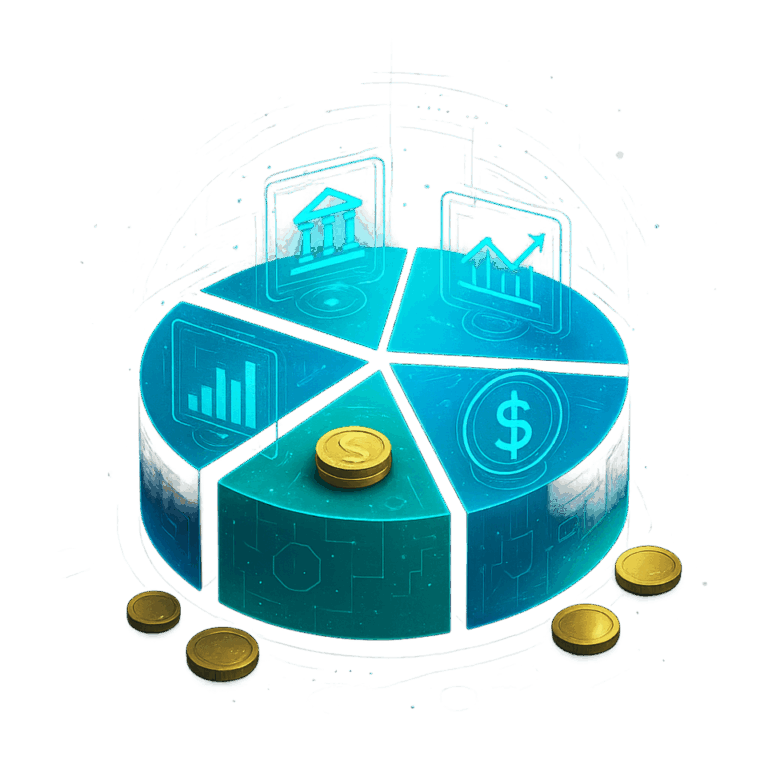The financial industry is experiencing a fundamental transformation with the rise of decentralized finance, widely known as DeFi. Built on blockchain technology, DeFi eliminates traditional intermediaries such as banks and brokers, allowing individuals to access financial services directly through digital platforms. This innovation has created new opportunities for lending, borrowing, trading, and earning yields, while also introducing unique risks and challenges. As DeFi continues to evolve, it has become a central topic in discussions about the future of money and financial independence.
What Is Decentralized Finance
Decentralized finance refers to a system of financial applications built on public blockchains that operate without centralized authorities. Instead of relying on banks or financial institutions to process transactions, DeFi uses smart contracts, which are self-executing programs that automatically enforce agreements. This structure provides transparency and security, as all transactions are recorded on the blockchain and accessible for verification. DeFi platforms aim to replicate and expand upon traditional financial services in a more open, global, and inclusive way.
Key Features of DeFi
Several features distinguish DeFi from traditional finance. Accessibility is one of its strongest advantages, as anyone with an internet connection and a digital wallet can participate, regardless of geographic location or background. Transparency ensures that all transactions and rules are visible on the blockchain, reducing the risk of hidden fees or manipulation. Programmability allows for the creation of complex financial products through smart contracts, while interoperability enables different platforms and applications to connect seamlessly within the DeFi ecosystem.
Popular Applications of DeFi
DeFi has introduced a wide variety of applications that mirror and extend traditional financial services. Decentralized exchanges (DEXs) allow users to trade cryptocurrencies directly without intermediaries. Lending and borrowing platforms enable users to earn interest on their digital assets or secure loans using crypto as collateral. Stablecoins, digital currencies pegged to traditional assets like the U.S. dollar, provide stability for transactions and savings. Yield farming and liquidity mining offer incentives for users who provide liquidity to DeFi protocols, generating returns in exchange for participation.
Benefits of Decentralized Finance
DeFi provides multiple benefits for individuals and institutions alike. It reduces costs by removing intermediaries and automating processes through smart contracts. It expands financial inclusion by offering services to people who may not have access to traditional banking. DeFi also enhances innovation, as developers can create new financial products quickly and efficiently. For users, the ability to retain full control over their assets and interact with global markets 24/7 represents a significant shift from conventional systems.
Risks and Challenges of DeFi
Despite its promise, DeFi comes with substantial risks. Smart contracts are vulnerable to coding errors and cyberattacks, which can result in significant financial losses. The volatility of cryptocurrencies used within DeFi platforms can impact collateral values and loan stability. Regulatory uncertainty remains one of the biggest challenges, as governments worldwide are still determining how to oversee decentralized systems. Liquidity risks, governance issues, and the potential for fraudulent projects also require careful attention from participants.
DeFi and the Future of Finance
Decentralized finance is still in its early stages, but its potential to reshape global finance is undeniable. As technology matures and regulation develops, DeFi could complement traditional banking rather than replace it, offering hybrid solutions that combine decentralization with regulatory oversight. Central banks are also exploring digital currencies, which could eventually integrate with DeFi ecosystems. The growing adoption of blockchain by institutions suggests that DeFi will remain a major influence on how financial services are delivered in the coming decades.
Conclusion
Decentralized finance represents a groundbreaking shift in the way financial services are structured and accessed. By leveraging blockchain and smart contracts, DeFi removes barriers, increases transparency, and fosters innovation. However, it also introduces new challenges that require careful consideration, from technological risks to regulatory questions. For individuals seeking to understand the future of money, learning about DeFi provides valuable insights into how financial systems may evolve. While its long-term trajectory is still uncertain, DeFi is undeniably a driving force in shaping the next chapter of global finance.



